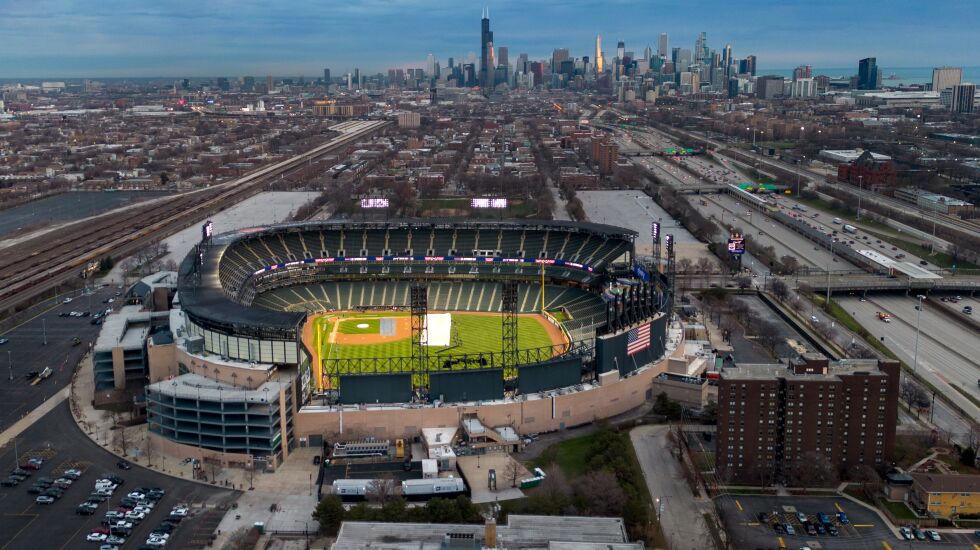
Maurice Cox — Chicago’s now-former planning commissioner — knocked it out of the park with his assessment this week of Guaranteed Rate Field.
The acres of surface parking immediately surrounding the stadium are “one of the bigger untapped opportunities for redevelopment that we have on the South Side,” Cox told Sun-Times reporter David Roeder.
It’s true. While many other professional basketball stadiums are ringed by neighborhoods and retail amenities — Wrigley Field is a prime example — the Chicago White Sox’s ballpark is collared by an astounding 70 acres of surface parking.
That’s a space almost three times the size of Millennium Park. And much of it just sits empty during the offseason (perhaps even during the season, with the way the team has played over the past decade) or when no special events are planned.
What a waste, from both a fan experience and an urban planning standpoint.
The White Sox’s stadium lease expires in six years. Assuming the team isn’t moved by then, the Illinois Sports Facilities Authority — the public agency that owns the stadium and the parking lots — should make turning those parking spaces into a neighborhood part of any new agreement with the Sox.
A ‘most exciting’ opportunity?
The White Sox’s chronically low attendance has much to do with the disappointing product on the field, particularly since the team’s 2005 World Series win.
The Cubs have fared only slightly better, but Wrigley — unlike Guaranteed Rate — sits in a dense, picturesque, transit-accessible neighborhood with restaurants, bars and other amenities.
Same with MLB baseball parks Coors Field in Denver, built in 1995, and Pittsburgh’s PNC Park, which opened in 2001.
And just this week, the Tampa Bay Rays baseball team announced plans to build a new 30,000-seat ballpark in downtown St. Petersburg. The stadium would be a component of the redevelopment of the city’s 86-acre Historic Gas Plant District.
“If they can unleash the redevelopment potential of their land holdings there, it could be one of the most exciting opportunities tied to a sports facility anywhere,” Cox told Roeder, speaking of Guaranteed Rate.
But key to unleashing that potential means the ISFA will need to end or alter part of the current lease agreement that allows White Sox owner Jerry Reinsdorf to keep gross receipts from the stadium’s parking lots.
The lots are publicly owned, and must be redeveloped for the public’s benefit. To do otherwise would be not only an unforced error, but a big loss for Chicago.
The Sun-Times welcomes letters to the editor and op-eds. See our guidelines.







